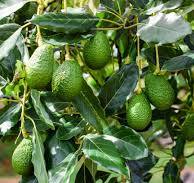The Nutritional Wonder: Avocado
Avocado (Persia Americana) is a unique fruit known for its creamy texture and rich flavor. Often celebrated for its versatility in culinary applications, the avocado has transcended its humble beginnings to become a staple in diets worldwide. Beyond its taste, avocados are packed with essential nutrients, making them a sought-after superfood. This article will delve into the nutritional profile of avocados, their health benefits, and their contributions to a balanced diet, supported by references from the World Health Organization (WHO).
Profile of Avocado
A single serving of avocado, typically one-third of a medium-sized fruit (about 68 grams), offers a rich array of nutrients:
- Calories:
240 kcal (per full avocado) - Carbohydrates:
12 grams - Dietary
Fiber:
9.2 grams - Sugars:
0.2 grams - Proteins:
3 grams - Fats:
22 grams- Saturated
Fat:
3 grams - Monounsaturated
Fat:
15 grams - Polyunsaturated
Fat:
3 grams
- Saturated
- Vitamins
and Minerals:- Vitamin
K: 26% DV - Folate:
20% DV - Vitamin
E: 10% DV - Vitamin
C: 17% DV - Potassium:
15% DV - Magnesium:
10% DV
- Vitamin
Health Benefits of Avocado
“Avocado”
1. Heart Health
Food way to get monounsaturated related fats, which are considered heart-healthy. According to WHO guidelines, unsaturated fats, particularly oleic acid found abundantly in avocados, can help reduce bad cholesterol levels (LDL), thus lowering the risk of heart disease (WHO, 2018). Also helps to maintain good blood levels.
2. Nutrient Absorption
The healthy fats in avocados aid in the absorption of fat-soluble vitamins such as A, D, E, and K. A study published in the Journal of Nutrition demonstrated that consuming avocados with salads significantly increased the absorption of these vitamins (Wang et al., 2015). This means that adding avocados to meals can enhance overall nutrient uptake.
3. Digestive Health
Avocados are an excellent source of dietary fiber, which is essential for maintaining digestive health. The fiber content promotes healthy bowel movements and may help prevent constipation. WHO asserts that a diet rich in fiber can reduce the risk of developing digestive disorders (WHO, 2015).
4. Weight Management
(WHO, 2018).
5. Anti-Inflammatory Properties
The antioxidants found in avocados, such as carotenoids and tocopherols, possess anti-inflammatory properties. As Chronic type inflammation is associated to various health issues, including diabetics and heart related diseases. By reducing inflammation, avocados contribute to overall health and well-being.
Avocado is rich in vitamin E, a powerful antioxidant that supports skin health. Its hydrating properties make it popular in cosmetic formulations. Furthermore, lutein and zeaxanthin, antioxidants found in avocados, are crucial for eye health, particularly in preventing age-related macular degeneration (AMD) (WHO, 2016).
Culinary Uses of Avocado
Avocados are incredibly versatile and can be incorporated into a variety of dishes. They can be enjoyed sliced or mashed in salads, sandwiches, and wraps. Guacamole is perhaps the most famous avocado dish, commonly used as a dip. Due to their creamy texture, avocados are also a popular ingredient in smoothies and desserts, providing a nutritious and indulgent touch.
Sustainability Considerations
As the popularity of avocados has surged, so too has the scrutiny regarding their environmental impact. Avocado farming requires significant water resources, particularly in regions facing water scarcity. Sustainable farming practices and responsible consumption can help mitigate these environmental concerns. WHO emphasizes the importance of sustainable food systems for health and ecology (WHO, 2020).
Conclusion“Avocado”
Avocados stand out not only for their delightful taste and texture but also for their remarkable nutritional profile. Rich in healthy fats, vitamins, and fiber, avocados are an excellent inclusion in a balanced diet. Their myriad health
benefits, supported by WHO guidelines, make them a true superfood. As consumers become more health-conscious, avocados will undoubtedly maintain their status as a popular dietary choice.
References
- World Health Organization (WHO). (2018). “Healthy diet”. Retrieved from WHO
- World Health Organization (WHO). (2015). “Diet, nutrition, and the prevention of chronic diseases”. Retrieved from WHO
- World Health Organization (WHO). (2016). “Global Health Estimates 2016”. Retrieved from WHO
- World Health Organization (WHO). (2020). “Sustainable healthy diets”. Retrieved from WHO
-
Wang, L., et al. (2015). “Avocado consumption increases the absorption of carotenoids in the human body”. Journal of Nutrition. Retrieved from Journal of Nutrition

hakim
My favorite, because of its health benefits